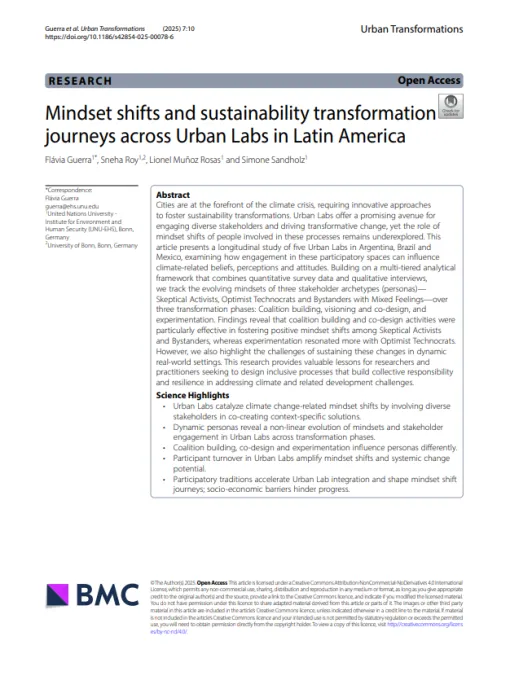
Cities are at the forefront of the climate crisis, requiring innovative approaches to foster sustainability transformations. Urban Labs offer a promising avenue for engaging diverse stakeholders and driving transformative change, yet the role of mindset shifts of people involved in these processes remains underexplored. This article presents a longitudinal study of five Urban Labs in Argentina, Brazil and Mexico, examining how engagement in these participatory spaces can influence climate-related beliefs, perceptions and attitudes. Building on a multi-tiered analytical framework that combines quantitative survey data and qualitative interviews, we track the evolving mindsets of three stakeholder archetypes (personas)—Skeptical Activists, Optimist Technocrats and Bystanders with Mixed Feelings—over three transformation phases: Coalition building, visioning and co-design, and experimentation. Findings reveal that coalition building and co-design activities were particularly effective in fostering positive mindset shifts among Skeptical Activists and Bystanders, whereas experimentation resonated more with Optimist Technocrats. However, we also highlight the challenges of sustaining these changes in dynamic real-world settings. This research provides valuable lessons for researchers and practitioners seeking to design inclusive processes that build collective responsibility and resilience in addressing climate and related development challenges.